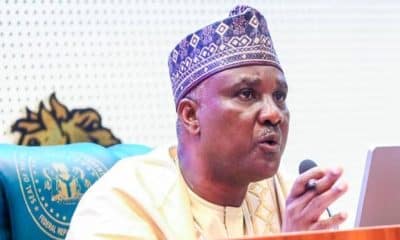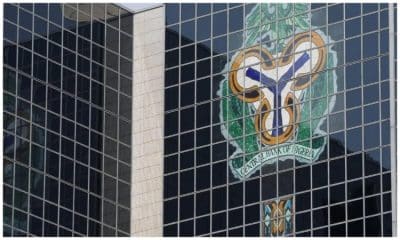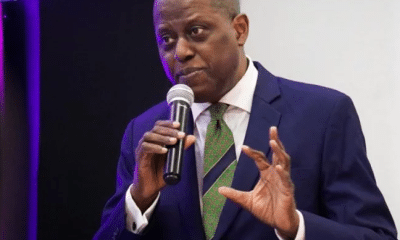Business
Central Bank Injects $326 Mln Into Currency Market


CBN Governor,
Godwin Emefiele
The Central Bank Of Nigeria on Friday it had injected $325.64 million into the interbank foreign exchange market as part of efforts to boost liquidity and reduce dollar shortages.
Nigeria, an OPEC member which has Africa’s largest economy, fell into recession in 2016 largely due to low crude oil prices. Lower oil receipts led to dollar shortages since crude sales are the country’s main source of dollars.
Nigeria emerged from the recession in the second quarter of 2017 amid higher crude prices and the cessation of militant attacks on energy facilities in the Niger Delta oil production hub.
The central bank, in an emailed statement, said the $325.64 million was earmarked for the agricultural, airline and petroleum products sectors, as well as for raw materials and machinery.
The bank also said its dollar reserves were enough to maintain the international value of the naira currency as well as “guarantee access to forex by those requiring it to meet genuine needs”.
Nigeria’s foreign exchange reserves stood at $40.56 billion as of Jan. 29, up 4.6 percent from a month earlier. Successful debt sales, including multiple Eurobond offerings last year, have helped the government accrue billions of dollars in foreign reserves.










